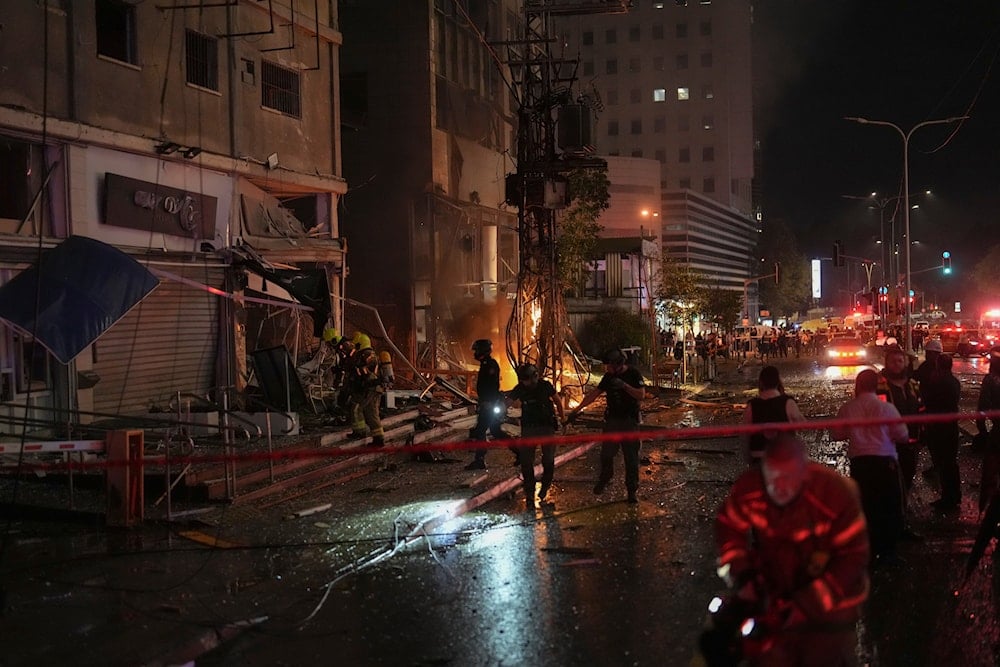Majority of Israeli settlers in favor of ceasefire in Lebanon: Poll
A recent poll by Israeli Channel 12 reveals that more than half of Israeli settlers are in favor of a ceasefire agreement with Lebanon.
-

Security forces cordon and inspect the location after a rocket attack in Ramat Gan, "Tel Aviv", occupied Palestine, on November 18, 2024. (AP)
54% of Israelis support negotiating a ceasefire to end the Israeli war on Lebanon, while 24% are opposed to such an approach, a recent survey by Israeli Channel 12 revealed.
The remaining 22% did not express a clear opinion.
The poll, released on Saturday, also revealed significant dissatisfaction with the government's response, with 64% of respondents expressing a lack of trust in Prime Minister Benjamin Netanyahu's management of the situation.
Only 30% expressed confidence in his leadership.
Regarding accountability, 79% of respondents favored the creation of a commission of inquiry into the events of October 7, 2023, while 8% were opposed.
Lower support rates loom over Netanyahu
When compared against other prominent Israeli leaders, Netanyahu held a slight lead. Compared with opposition leader Yair Lapid, 38% of respondents considered Netanyahu better suited for the prime minister role, while 28% preferred Lapid.
Matched against Benny Gantz, leader of the National Unity party, 37% favored Netanyahu, while 29% supported Gantz. In contrast, a comparison with former Prime Minister Naftali Bennett saw Netanyahu trailing, with 34% backing him and 38% favoring Bennett.
For the first time, Netanyahu was compared to National Unity's Gadi Eisenkot, and the results showed a closer contest, with 35% supporting Netanyahu and 33% favoring Eisenkot.
As the Israeli occupation continues its aggressive war against Lebanon and Gaza, it is accused of genocide by the International Court of Justice for its actions in the Palestinian enclave.
Moreover, the International Criminal Court has also issued arrest warrants for Netanyahu and his former Security Minister Yoav Gallant over accusations of war crimes and crimes against humanity in Gaza.
The Israeli newspaper Globes reported Thursday that the recent decision might pave the way for a European arms embargo on the Israeli occupation.
The decision significantly strengthens the position of those accusing the Israeli occupation of committing war crimes in Gaza and advocates for severing diplomatic ties, halting arms sales, and imposing broader boycotts.
According to the report, the ruling is likely to have several immediate repercussions, including restrictions on the travel of Israeli politicians. However, the most serious outcome could be increased difficulty in importing weapons due to fears—now backed by high-level legal justification—that such arms might be used to commit war crimes.

 3 Min Read
3 Min Read








